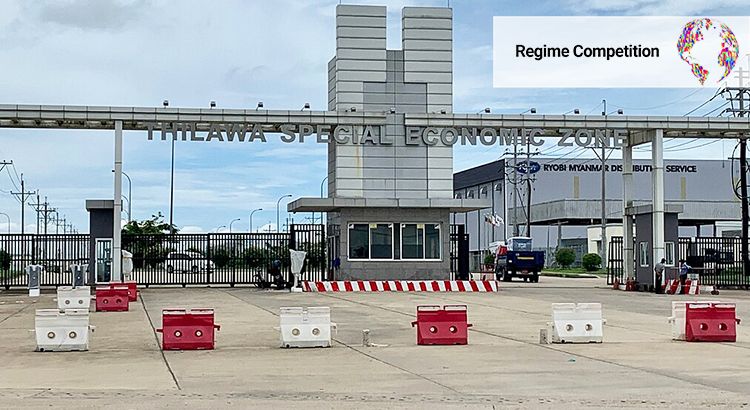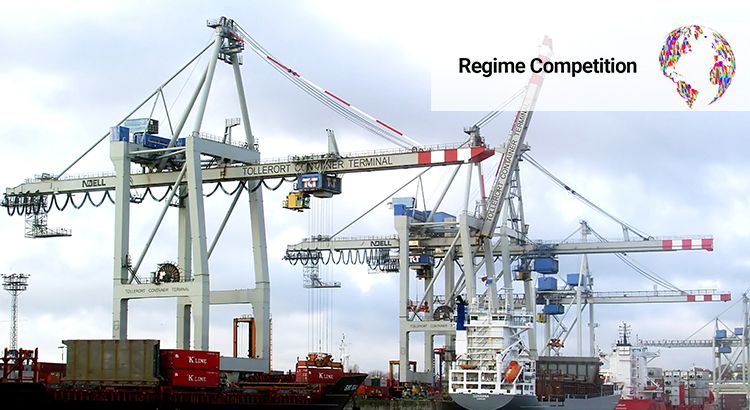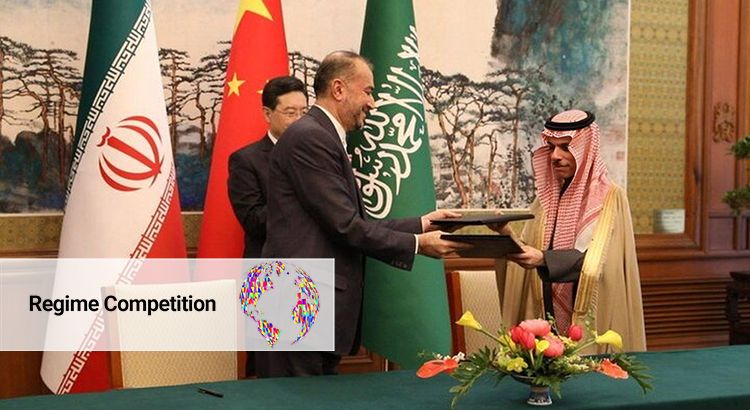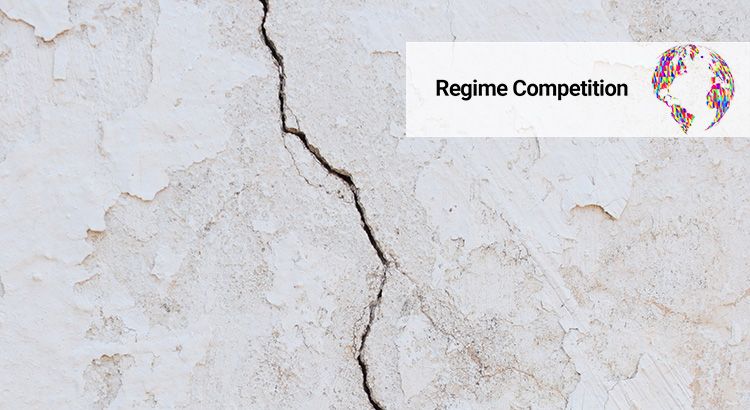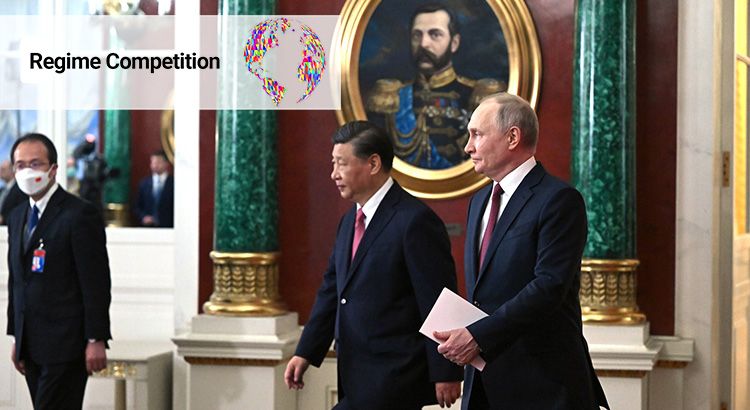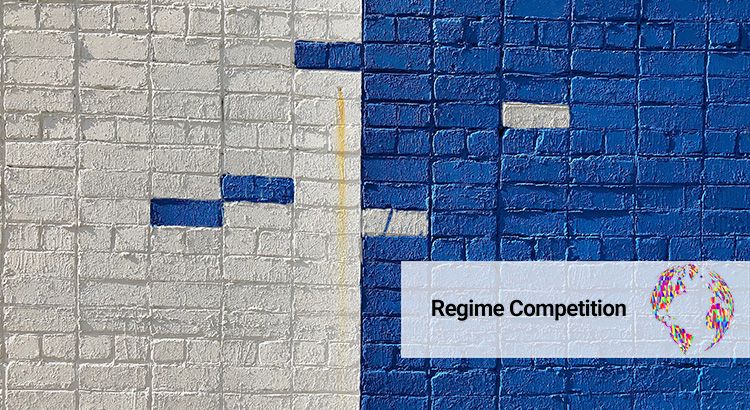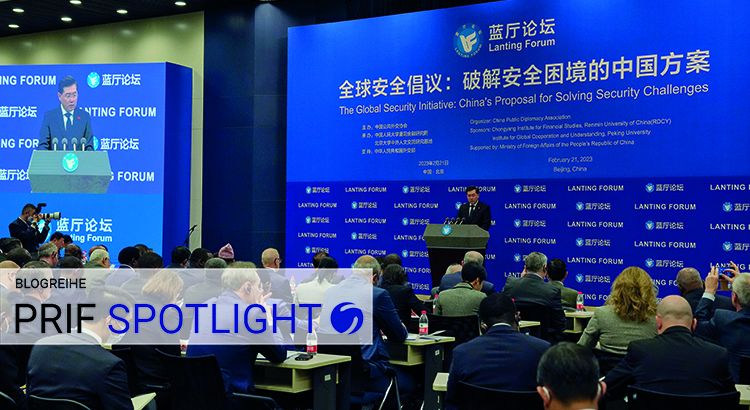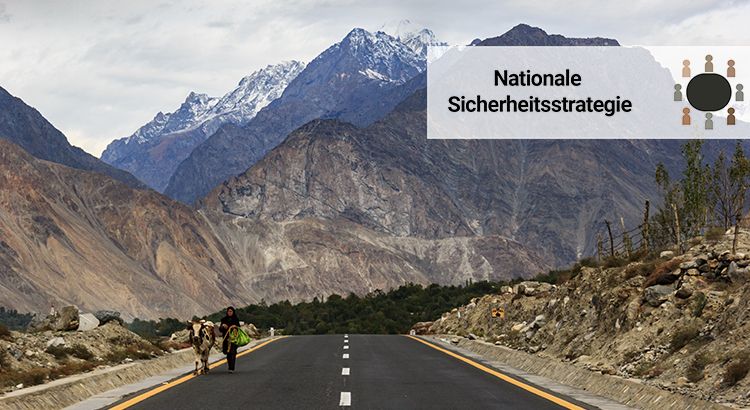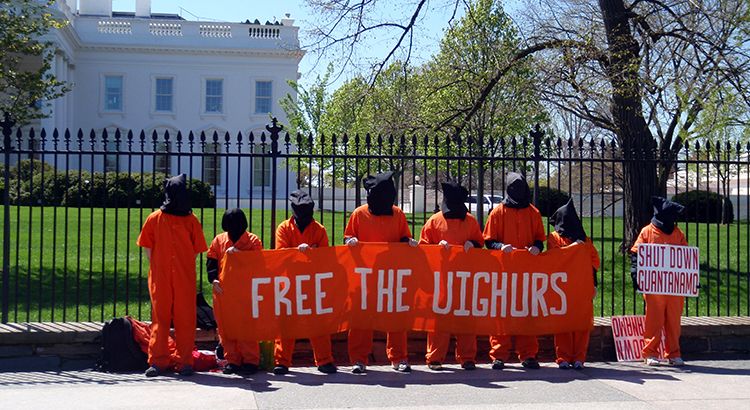Schlagwort: China
The 2021 military coup in Myanmar has left the country significantly isolated on the world...
Germany’s New China Strategy: A Defensive Shift
After a lengthy process of internal deliberation, the German government released its China...
The Power of Not Using Power: China and the Saudi-Iranian Rapprochement
The intensifying systemic rivalry between great powers also involves contesting the most...
Decoupling and the “New Cold War”: Cautionary Lessons from the Past
An emerging “new Cold War” appears to pit democracies, led by the US, against autocracies, led by...
Xi and Putin’s Strategic Tango: Unpacking the Complexities of Russia-China Relations After the 2023 Moscow Summit
The March 2023 state visit of Chinese president Xi Jinping to Russia has attracted significant...
Regime Competition in a Fragmented World: Consequences for Peace and Conflict
More than thirty years after the proclaimed “end of history” and the third wave of...
China’s new Global Security Initiative: a rising power spreads its wings
On 21st February 2023, the Chinese Foreign Ministry released its concept for a “Global Security...
Chinas Belt-and-Road-Initiative ist ein Sicherheitsproblem – aber nicht so, wie oft gedacht
Als Teil der „Zeitenwende“ in der deutschen Sicherheits- und Verteidigungspolitik soll...
The Xinjiang Police Files and the Visit of the UN High Commissioner: Will This Open Up New Opportunities?
The treatment of the Uyghur population by the CCP has been an ongoing concern for the last 5...
Nicht viel Liebe in Zeiten des Krieges: Sicherheitspolitik als neues Konfliktfeld in den europäisch-chinesischen Beziehungen
Der jüngste EU-China-Gipfel am 1. April fand unter dem Schatten des Krieges in der Ukraine...
